It is often said that Great Danes have a short lifespan. Those of you who (like us) have Great Danes, know all too well how often people come up and say things like “I could never own one, they just don’t live long”.
How many times have you heard this from your veterinarian, too? They see dogs daily and know the statistics; large and giant breed dogs don’t live as long as smaller ones.
The average life span of a Great Dane is between 8 and 10 years old. We’ve seen some live as long as 12 or 13, while others cross the Rainbow Bridge long before their time.
Any dog’s life is fragile and, unfortunately, shorter than a human’s life.
But, perhaps giant breed dogs’ lives do not need to be labeled as short.
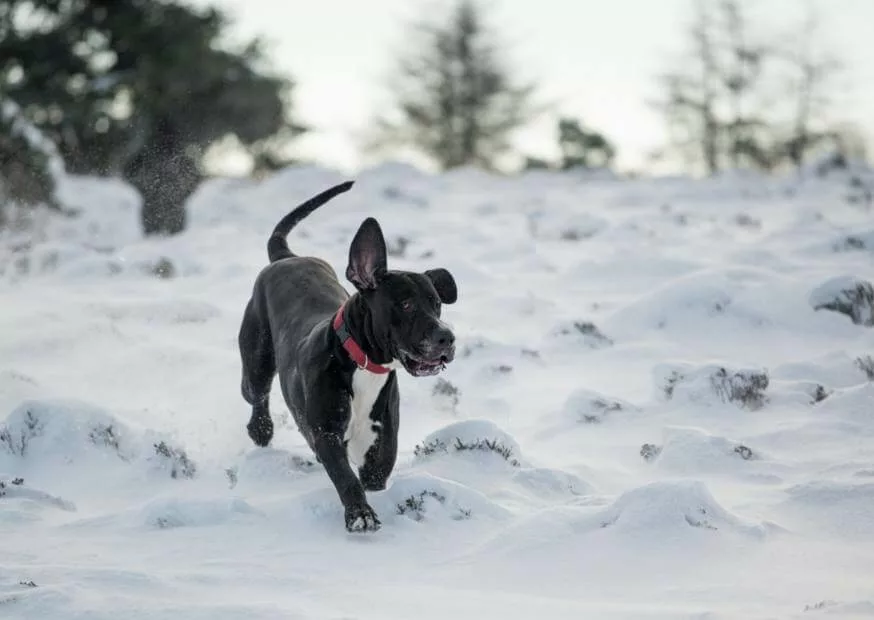
Why Do Great Danes Have a ‘Short’ Lifespan?
We wrote an article on how to extend Great Dane’s life span, and that article is one of our most popular to date.
People love their big dogs and want them to live forever!
However, big dogs face many BIG health issues that shave time off their lives.
- Joint problems
- Brittle bones
- Poor structural health
- Higher risk of osteosarcoma cancer
- Bad hearts
- Bloat/GDV/Torsion
A Jack Russel Terrier, for example, has a life span of anywhere from 16 to 20 years. My vet tech the other day told me about her JRT Dog that lived to age 22, running around like crazy to the last day. Their little bodies were built to live.
This is not true for the big dogs, and that stinks.
Great Dane Puppies are Cursed From the Beginning
Great Danes are a popular giant breed of dog. That popularity comes with a price! Thousands of unethically bred dogs are poured into the system to meet demand.
When breeders are focused more on profits than on health, the dogs suffer.
When you bring home any puppy, but especially large dogs, it is crucial that you source them from an ethical place. A key place we can begin to tackle this problem is by never buying puppies from breeders who don’t have a truly educated, thorough, caring dedication to the breed.
What happens when you buy your Great Dane puppy from a backyard breeder or pet shop?
Puppies from pet stores and unethical breeders are more likely to suffer from painful and deadly health conditions. That’s an unfortunate fact of life. Heart disease, bone disease, hip and elbow dysplasia/joint and bone diseases, other joint problems and musculoskeletal diseases, bloat (stomach twisting), or other health problems are just a few that plague the breed.
This business has, consequently, damaged the Great Dane’s lifespan. People who have absolutely no business breeding a Great Dane are now qualifying themselves as Great Dane experts in Facebook groups, online websites, and other forums. (We call these people backyard breeders, even if you don’t view them as backyard breeders- they are sneaky!)
This means that, if you are not careful in your research, you may unknowingly buy a puppy from a backyard breeder or pet shop that has no ethical standards and is only interested in making money off of puppies.
Yikes.
How to Choose an Ethical Breeder
Respectable Great Dane breeders are looking first to preserve the standard for the breed. (You can read more about the standard here).
To accomplish this, they will only breed dogs that meet or exceed those standards for health, temperament, movement, and structure.
Once they decide to breed, they fully health test. For Great Danes, full health testing means:
- Heart
- Hips
- Eyes
- Thyroid
- All of the above tests passed and documented at www.ofa.org
They will raise the puppies with puppy culture and would never send them home before 8 weeks of age.
If your Great Dane breeder doesn’t check all of these boxes (and has the paperwork to prove it), they aren’t ethical.
Choosing an ethical breeder is one of the most important steps you can take.
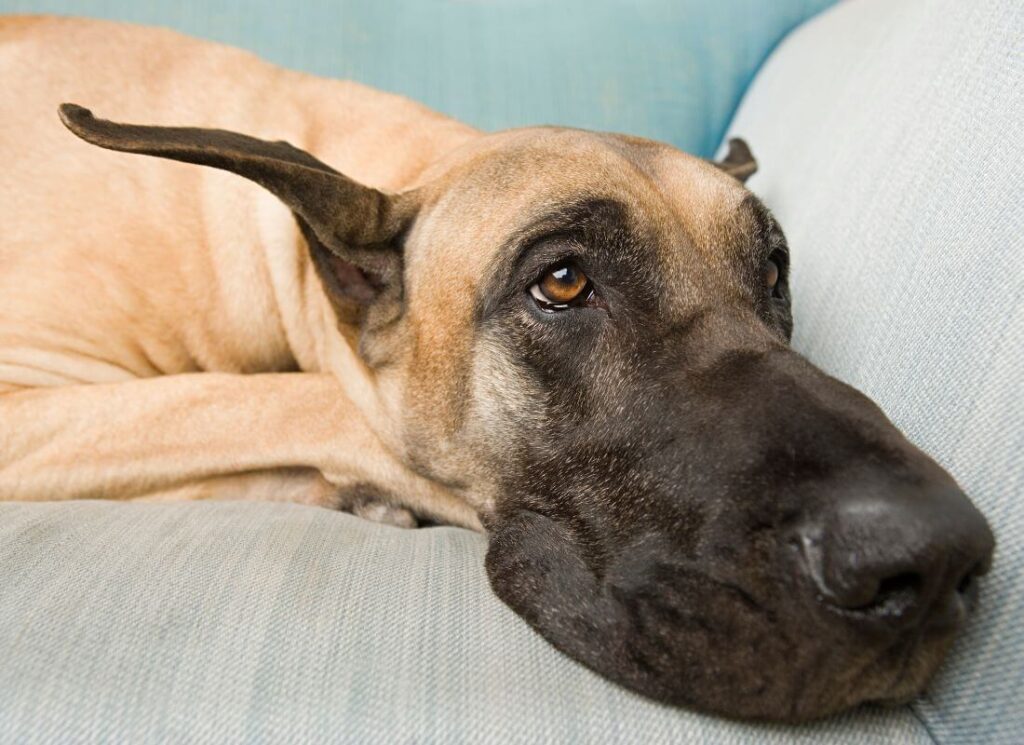
How to Help Great Danes Live Longer
Don’t worry, if you already have a Great Dane, all hope is NOT lost.
- Choose an ethical breeder who health tests their big dogs.
- Surround yourself with EDUCATED Great Dane owners. Keep in mind that many groups on Facebook are spreading a lot of outdated or dangerous information. Tread cautiously.
- Choose a veterinarian who is educated on Great Danes and other giant breeds
- Practice and promote good health by living out the truths that your Veterinarian and other studied/data-driven resources provide for your Great Dane.
Let’s dive in.
How Diet & Nutrition Affects Great Dane Health
Do not fall prey to a breeder who shares MLM / Scammy dietary fads for their dog food of choice. A quality Great Dane breeder will know the current science and data in regards to a healthy diet, and begin the puppies on a healthy diet as soon as they are transitioned to real food.
Puppies should eat a large or giant breed puppy food with 1.2% or less calcium AND the AAFCO Large Breed Growth Statement. (Read more here). This advice mirrors the most current, updated practices and opinions offered by Board Certified Veterinary Nutritionists.
Never feed food with more than 1.2% calcium. This is damaging to the bones, particularly during growth.
Avoid dry grain-free diets, as they are seen often in cases of preventable heart disease. (Read more about grain-free DCM here).
Keep your Great Dane lean! Excess weight contributes to a shorter lifespan, shaving off an average of 2 years!

Surround Yourself With An Educated Village
Now, if you already brought home a Great Dane, and you’re just now realizing that your Great Dane is from a backyard breeder, don’t sweat.
I did too. Many of us have!
You may face more health problems down the line but it does not mean your Great Dane will be ‘destined’ for a short life span. You can still help to create a longer and healthier life for your Great Dane.
But, not if you fall victim to the Great Dane ‘experts’ who share false and damaging information on Facebook groups, Instagram, and YouTube.
Find an educated village to surround yourself with which consists of Vets, Scientists, Researchers, Breeders who are transparent about their health testing and dieting, and experienced Great Dane Owners.
Join our Facebook group for a science-based conversation.
Tread cautiously with keyboard warriors and people who don’t have the credentials to speak with authority on certain topics.
For example:
Anybody with a “nutritionist” title, such as a “Canine Nutritionist”, or “Holistic Pet Nutritionist”, etc. is likely spreading misinformation.
These people are carrying certificates from random online non-accredited courses. The only nutritionist with a legitimate title will have a Ph.D. in Animal Nutrition and/or carry a board certification in Veterinary Nutrition (DACVN).
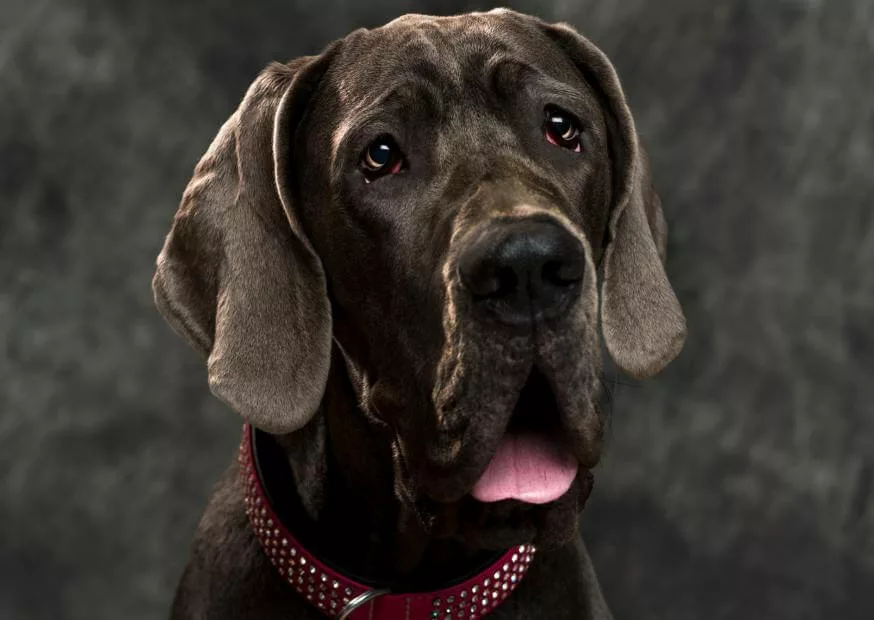
Trusting your Veterinarian with Your Great Dane
Find a veterinarian who is knowledgeable and informed about Great Danes and other large dog breeds. Keep in mind that just because they give you information that may contradict what you’ve come to believe from other sources, doesn’t mean they are wrong.
If you find yourself doubting your vet- ask yourself why.
Is it because of you, or is it because of them? Can you have an open, honest conversation with your veterinarian about your Great Dane’s health, or are you resistant because you are concerned about “chemicals and toxins” in their recommendations?
Can your veterinarian be honest with you about your pet’s weight and diet, or do they avoid those conversations because you are resistant to them?
This topic is a big one that I could write another entire blog on, but the key point is this. It’s up to you to ask more questions. In doing so, allow your veterinarian to explain their side of things, and give their recommendations.
What they say may surprise you! Find a veterinarian that you trust, and run with it.
Facebook Groups
Facebook groups are a GREAT way to connect with other Great Dane owners, learn new things about Great Danes, and get tips on how to take care of them.
But, don’t just join any group. Find a group that is full of experts and has an active mod team to make sure all information shared is backed by research and facts.
If you want your Great Dane to live longer, steer clear of the outdated and often dangerous misinformation spread around in online social groups.
You don’t want to risk the health and safety of your Great Dane by relying on uneducated advice.
Many owners of Great Danes, for example, share outdated information that could HARM your dog.
On this website, we make every effort to share ONLY up-to-date and scientifically backed information about Great Danes.
The Great Dane life is fragile and a blessing- don’t waste it with myths and old wives’ tales!
Be Aware
Be aware of things that, statistically, lower a Great Dane’s lifespan.
Health problems that commonly lower a Great Dane’s lifespan include bloat, heart issues, cancer, and bone and joint problems.
Be proactive in preventing these health issues by:
- Feeding your Great Dane a healthy diet
- Monitoring your pup’s weight and body condition score
- Comparing insurance quotes to make sure you have the best coverage for your Great Dane and are always able to provide them the healthcare that they need
- Frequently (at least yearly) do bloodwork for your Great Dane to avoid unexpected health problems
- Provide your Great Dane with the socialization and interactions they need to avoid anxiety and temperament issues
- Hire a trainer!
- Avoid Great Dane myths (Bloat Myth Busting Here) (Grain Free myth-busting here)
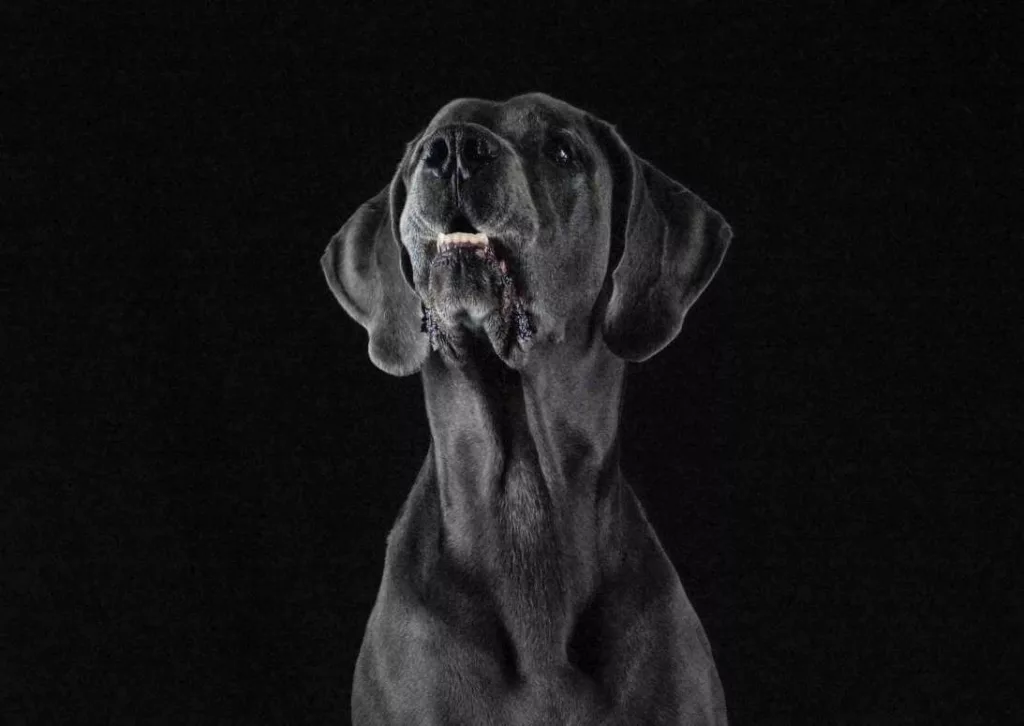
The Great Dane Lifespan: A Porcelain Blessing
From the time you bring your Great Danes home, you find yourself feeling as though they are made of glass.
Sort of funny, since they’re so huge.
Great Danes come across (and are) a strong, regal, loyal, protective, and beautiful breed. But, once you become an avid owner and lover of Great Danes, you realize the beauty resembles a porcelain antique. The value that a Great Dane life holds is something you may not ever experience again. It should be cherished, protected, and held close to the heart.
The life of a Great Dane is precious and fragile; with the right care, diet, socialization, medical experience, and an educated village to guide them- you can ensure your pup lives a long and healthy life.
Great Danes have the potential to live a long, happy, and healthy life if we break the narrative of following myths that have been proved wrong by science decades ago, follow our veterinarian’s advice, and do what is truly in the best interest of our beloved canine companions.
Our Great Danes only have one life- let’s make sure it is happy, long, and healthy.
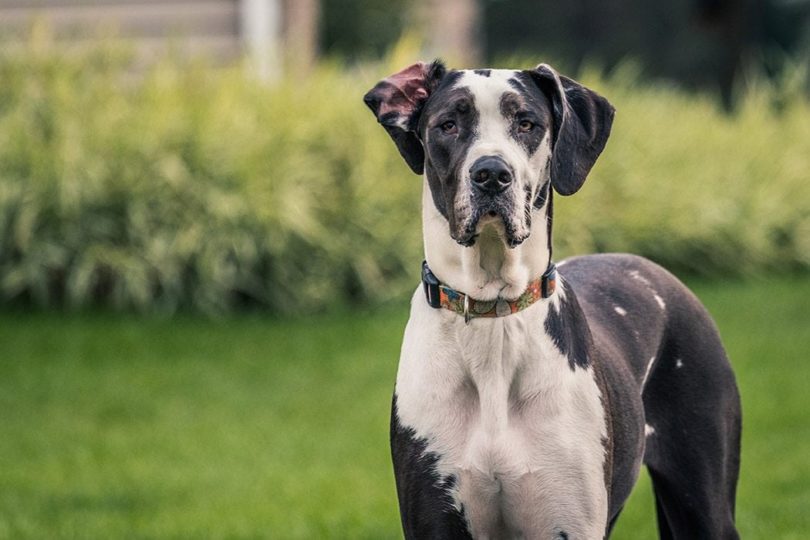
Leave a Reply